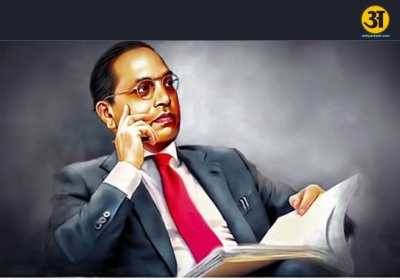
Canada's PM,has declared national emergency.
Canada's PM,has declared a rare national emergency.
Prime Minister Justin Trudeau took the unusual step of declaring a national public order emergency on Monday in an effort to put an end to protests that have paralysed the heart of Canada's capital for over two weeks and rippled across the country.
The move, according to Trudeau and several of his Cabinet ministers, will allow the government to take a variety of measures, including freezing protesters' bank accounts, to clear the blockade of about 400 trucks in Ottawa and smaller protests that have shut down border crossings in Alberta and Manitoba.
In a speech to the nation, Prime Minister Justin Trudeau said, "We cannot and will not allow illegal and harmful acts to continue," citing "severe difficulties to law enforcement's ability to properly enforce the law."
Invoking the Emergencies Act gives the federal government considerable, if temporary, power.
It permits authorities to use harsh measures to restore public order, such as prohibiting public gatherings and limiting travel to and from certain locations. Trudeau and his Cabinet, on the other hand, have repeatedly stated that the legislation will not be used to suspend "basic rights."
Emergency powers haven't been used in Canada in almost a half-century. Prime Minister Pierre Elliott Trudeau, Trudeau's father, imposed them during a terrorism crisis in Quebec. The 1988 Emergencies Act was invoked for the first time on Monday.
The police and government's response to the situation, which included a nearly week-long blockade of an economically vital border crossing with the United States, has been highly panned. Some critics argue that Justin Trudeau should have acted sooner and maybe sent military to break up the protest.
Trudeau said on Monday that he would not use the declaration's authority, which would endure for 30 days, to bring in the military, confirming his past stance against military participation.
However, Canada's justice minister, David Lametti, described a wide range of new special powers available to the government.
Trucks and other vehicles used in blockades will now be possible to be seized by police. The bill will explicitly prohibit rallies that "go beyond lawful protest," as well as blockades in defined places such as border crossings, airports, and the city of Ottawa, he said.
Tow truck drivers who previously refused to comply with authorities will now be forced to do so in order to clear Ottawa's streets and the border crossings in Coutts, Alberta, and Emerson, Manitoba.
While the national force will not take over enforcement in Ottawa from the municipal police, its members will now be able to enforce provincial laws and local regulations, as well as carry out any federal directives issued under the Emergencies Act.
The deputy prime minister and finance minister, Chrystia Freeland, outlined a number of measures, including expanding anti-money laundering and anti-terrorism powers to regulate the online crowdfunding platforms that have aided in the financing of the protests. Any blockade-related initiatives will have to be reported to Canada's anti-money laundering agency by credit card processors and fundraising services.
Protesters' personal and corporate accounts may be frozen as a result of police sharing information with banks. Any vehicles used in blockades will have their insurance revoked by insurance firms.
Freeland urged demonstrators, "Send your semitrailers home."
Trudeau vowed that the government would provide financial aid for stores, restaurants, and other businesses in Ottawa that had to close due to the occupation soon.
The Mounties said a substantial cache of weaponry, including rifles, body armour, and a machete, had been discovered in three trailers at the Coutts border roadblock on Monday morning, as Trudeau was outlining his decision with the premiers of Canada's ten provinces.
When the elder Trudeau proclaimed a state of emergency nearly 52 years ago, he did so under a predecessor statute, the War Measures Act, and the threat he faced was terrorism, not civil disturbance. Quebec's deputy premier and a British diplomat were kidnapped by a group of Quebec separatists who had carried out a bombing campaign in Montreal. The deputy premier, Pierre Laporte, was assassinated afterwards.
Several national security specialists hailed the choice made by the current prime minister on Monday.
"In the face of the breakdown of law and order in parts of Canada and the economic and reputational costs that Canada suffered with some of its allies, particularly the United States," said Wesley Wark, a national-security expert and senior fellow at the Center for International Governance Innovation, a Canadian public policy think tank. "I anticipate increased law enforcement in the coming days."
Some of the restrictions on rights introduced by the bill, such as those on movement, are admissible under Canada's Charter of Rights and Freedoms, according to Leah West, a professor at Carleton University who researches national security law. However, she believes the financial measures will be more difficult.
Many Canadians, particularly Ottawa citizens, have expressed growing dissatisfaction with what they see as a sluggish police reaction to the protests, which began as a truck convoy in British Columbia's western province and reached the capital on January 29. While there has been no physical violence, lives have been interrupted in the communities surrounding the Parliament, and police are investigating many reports of hate crimes and harassment.
The national war memorial has been desecrated by protesters, whose numbers rise on weekends, and legal infractions such as public drinking are common. The closure of an expensive shopping centre only blocks from Parliament is already in its third week. Tens of millions of dollars in sales have been lost, and roughly 1,500 individuals have lost their jobs.
The police chief of Ottawa, Peter Sloly, has stated several times that his department, which had authority over the protests before the emergency declaration, is understaffed and has requested upwards of 1,800 additional officers.
But Sunday, Bill Blair, the federal disaster preparedness minister and a former police chief of Toronto, said he found the lack by action by Ottawa’s force “inexplicable.”
Trudeau convened Canada's ten province premiers, as well as his caucus and Cabinet, to advise them of his decision on Monday, as required by law. The emergency declaration took effect immediately, but it must be approved by the House of Commons within seven days.
Also read : USA is offering a $10 mn reward for info about ISIS-K leader





